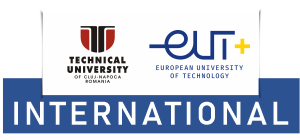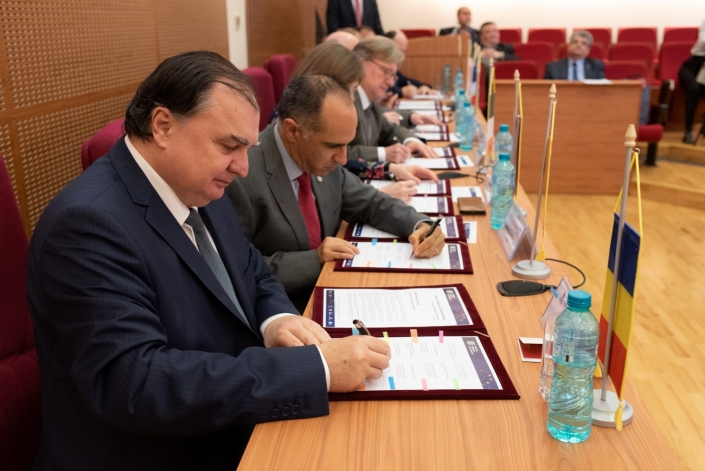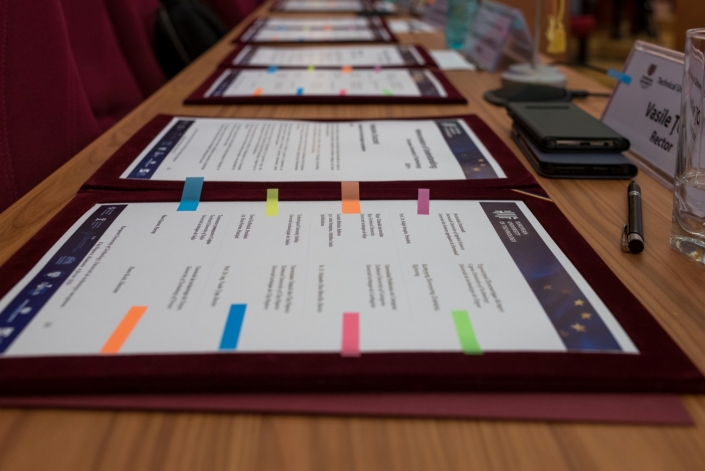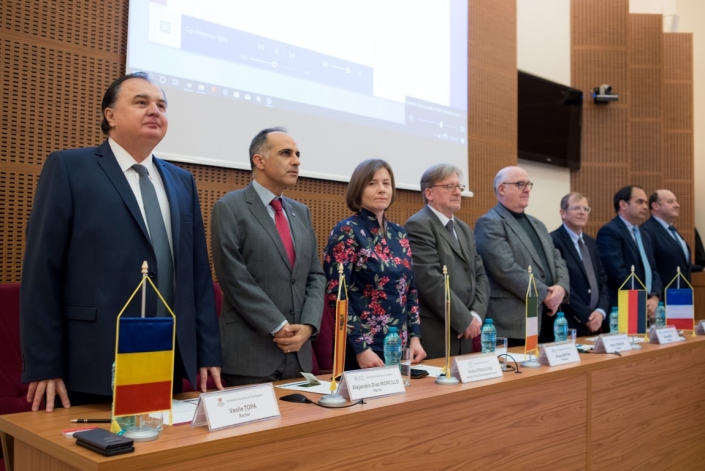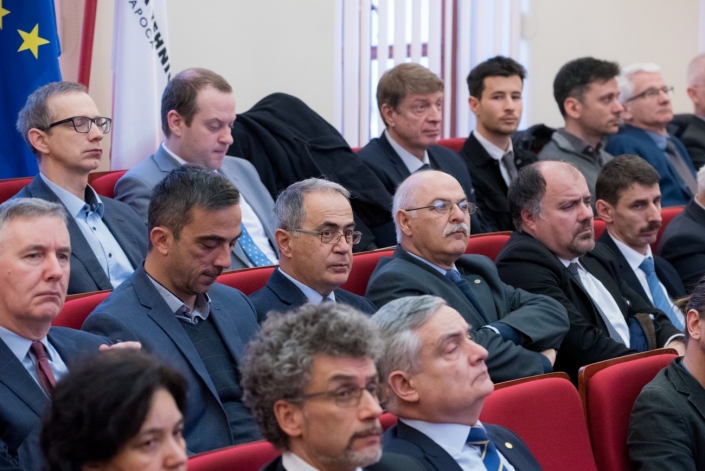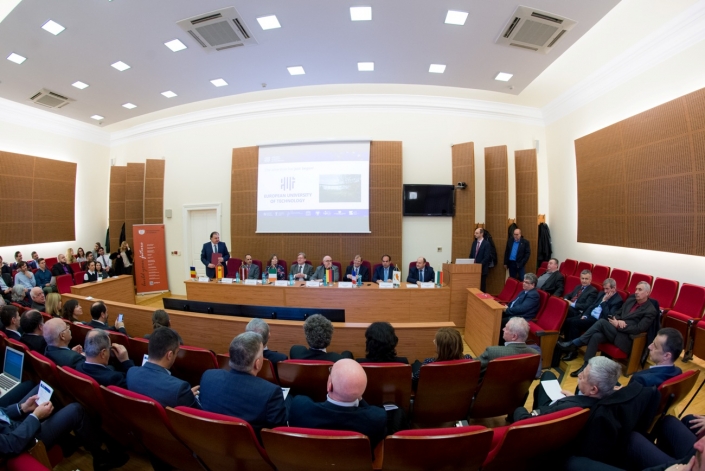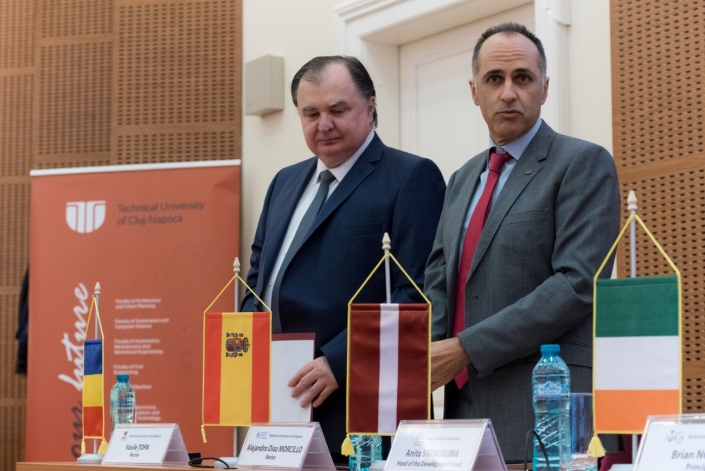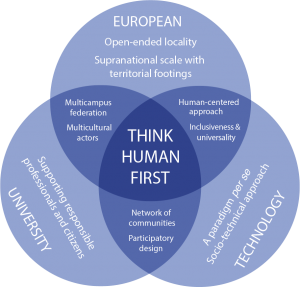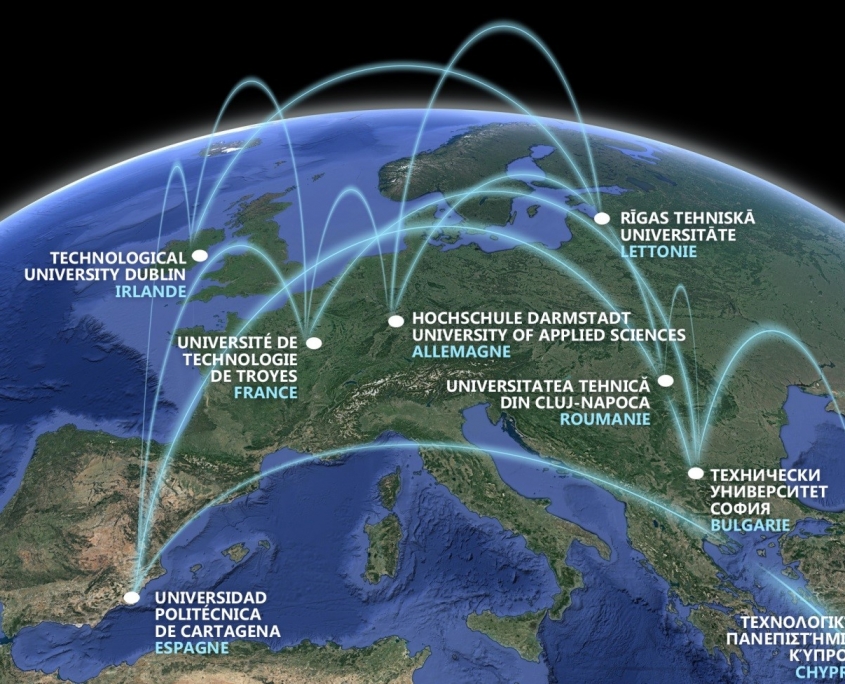Technical University of Cluj-Napoca – member of
The Technical University of Cluj-Napoca (TUCN) is one of the eight recognized technical universities that have come together to create ”The European University of Technology, EUt+”. This alliance will seek to reshape the concept of university, to become active both locally and within Europe and to foster excellence and bring extra value for the European society, economy and culture. European universities are transnational alliances that will become the universities of the future, promoting European values and shared identity and revolutionizing the quality and competitiveness of European higher education.
The European Commission will commit to the full implementation of the European Universities initiative under the Erasmus + program in close synergy with Horizon Europe (H2020) and other EU instruments.
The agenda for transforming the higher education follows a long-term vision, in order to help accelerate the transformation of higher education institutions and universities in their four missions: education, research, innovation and social commitment. This will also put the European educational and research space together.
In February last year, TUCN hosted for the first time the meeting of all the rectors of the partner universities. During this meeting a Memorandum of Understanding was signed. The meeting in Cluj-Napoca represented a firm commitment and ownership of the EUt+ vision and objectives at a further level of cooperation between the representatives of the teachers and students from the 8 universities.
The project is coordinated by the University of Technology of Troyes (Université de Technologie de Troyes, France) and it comprises the following members:
- Технически университет София, Technical University of Sofia (Bulgaria);
- Τεχνολογικό Πανεπιστήμιο Κύπρου, Cyprus University of Technology (Cyprus);
- Hochschule Darmstadt, University of Applied Sciences (Germany);
- Technological University Dublin (Ireland);
- Rīgas Tehniskā universitāte (Latvia);
- Universitatea Tehnică din Cluj-Napoca (Romania);
- Universidad Politécnica de Cartagena (Spain).
Misiunile noii universități
- Providing new higher education paths for all European citizens in all their diversity and the necessary skills for a European space in ongoing transformation;
- Guiding inspired political actions towards sustainable solutions through cultural reflection on the complex problems of technology and society.
- Achieving the European Education Area by 2025, the aim of the European Commission is to examine together with the Member States and stakeholders, the development of an European Diploma that could provide a framework to facilitate the distribution of joint diplomas of university alliances, that the European universities will become by 2025.
The European University of Technology, through the synergy of its members and partners, has the following objectives:
- ensuring the recognition of credits for courses taught in the member institutions of the consortium;
- creating a common EUt + curriculum at the bachelor’s, master’s and doctoral level that will eventually lead to a single EUt + diploma;
- full integration of the programs of the eight universities, in order to offer students the possibility to choose the campus and the method to obtain their ECTS credits;
- facilitating student mobility with the help of a single European Student Card, which will provide access to all services (libraries, sports and leisure facilities, accommodation, etc.) on all eight campuses; in the same direction, the creation of a single EUt + professional card for academic and administrative staff, to ensure access to all services on the eight campuses;
- encouraging lifelong learning by integrating our educational offers to create and develop a unique EUt + portfolio;
- developing institutional policies for equal access, with an emphasis on inclusion and gender equality;
- stimulating creativity and innovation by repositioning humanities in engineering programs, in line with the motto Think Human First;
- development of a common infrastructure (library resources, databases, learning and research platforms, etc.);
- encouraging multilingualism, given that the consortium’s campuses speak 9 of the EU’s 24 official languages and all three EU alphabets are used.
